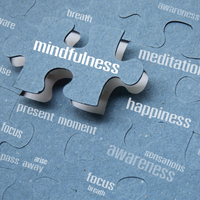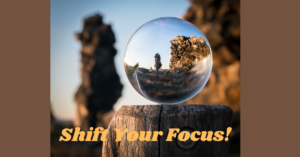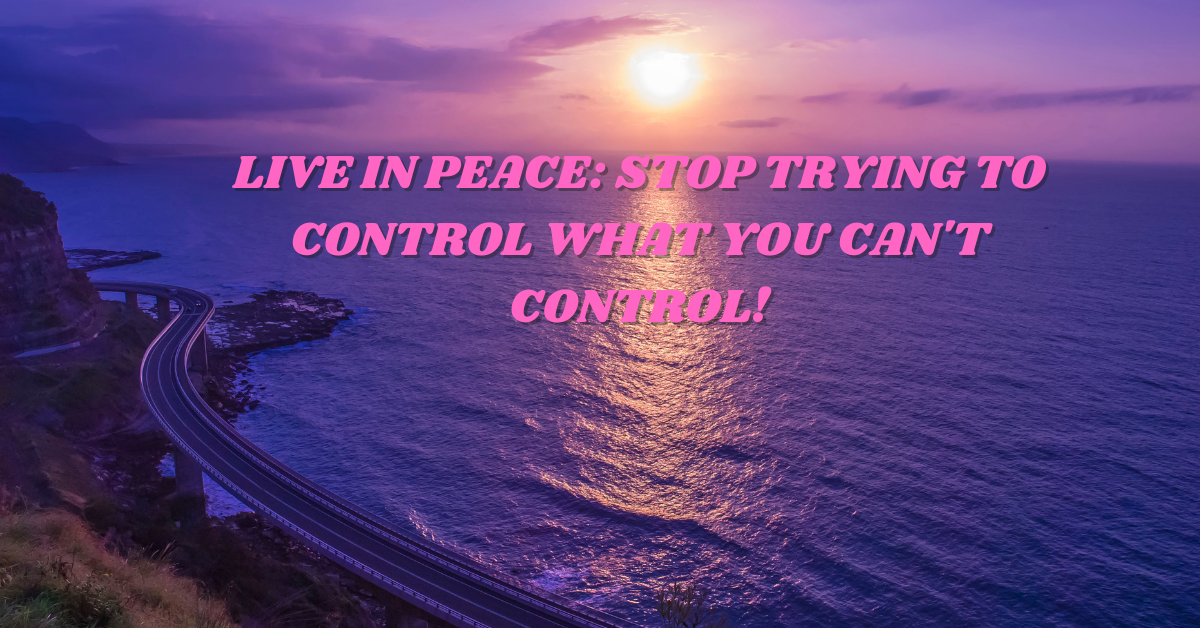There are so many things in our lives that can fall outside of the realm of our control. Having a firm understanding of this fact is the first in a list of tools that can help you learn to cope with things you cannot control.
Thankfully, there are other tools that you can also use to help you learn to stop trying to control those things you cannot control. The sooner we are able to master that task the better off life will be for us.

- Embrace Uncertainty: An essential part of learning to cope when you feel out of control is learning to embrace uncertainty. It is the hyper-focus on the uncertainty that leads to fear and anxiety which feeds feelings of loss of control. Learning to see uncertainty as an unavoidable and inherent part of life helps to release the hold of fear, leading to a more reasonable response. When we embrace the fact that we can’t control the outcome and therefore are not tasked with the responsibility of doing so, we can then relax and reach a state of inner peace.

2. Stress Reduction Measures: Implementing practices that work to reduce stress also work to reduce anxiety, fear, and worry that accompanies the feeling of being out of control and the subsequent need to try to control those things you feel out of control over.Such measures can include things like meditation, yoga, listening to music, or aromatherapy. Honestly, the measures can be specific to each individual so long as the primary purpose and function are to set aside intentional time to combat stress. Implementing these practices both improves our ability to deal with stress while also actively decreasing our stress levels.

3. Practice Mindfulness: Mindfulness is the practice of intentionally focusing attention on the current moment and embracing that moment free from judgment. It involves paying attention to what is happening in the mind, body, and the surrounding environment, and approaching those things with both curiosity and compassion.
The practice of mindfulness bolsters awareness of thoughts, sensations, and feelings while also improving our ability to cope. mindfulness leads to enhanced mental clarity, a greater sense of well-being, and a better ability to care for self. This strategy is so useful when you feel out of control because it acts as a grounding force. When you can slow down, pause, and focus on the current state of things mentally, physically, and environmentally, you can calm the chaos in your mind and refocus attention away from stressors towards those things that can facilitate peace.
From this place, you can better process situations and emotions and release the need to try to control those things that are beyond your reach.

4. Shift Your Focus: When you invest all of your attention and energy towards those things you cannot control you bring yourself to a place of stress and anxiety. It’s important to take our focus off of these things so that you can achieve the inner peace you desire. This means making another topic or task the target of your focus and energy.
When you redirect your focus towards those things you can control and change (i.e. your attitude, surroundings, etc.) then it naturally draws you away from an unhealthy obsession over what cannot be changed by your efforts or thoughts. Thus, you are able to restore a sense of inner peace and wellness.
When you stop trying to control what cannot be controlled or changed, you’ll find yourself in a better mental space. The freedom that releasing what is out of your control allows you to commit your efforts towards those things you can alter for the better and gives you the mental freedom to enjoy your life rather than living in a persistent space of worry.
I hope this article was helpful to you. Get my eBook: “Be Anxious for Nothing: God is in Control!” Click the link below for an instant download. https://integritystewardship.com/product/be-anxious-for-nothing-god-is-in-control/

